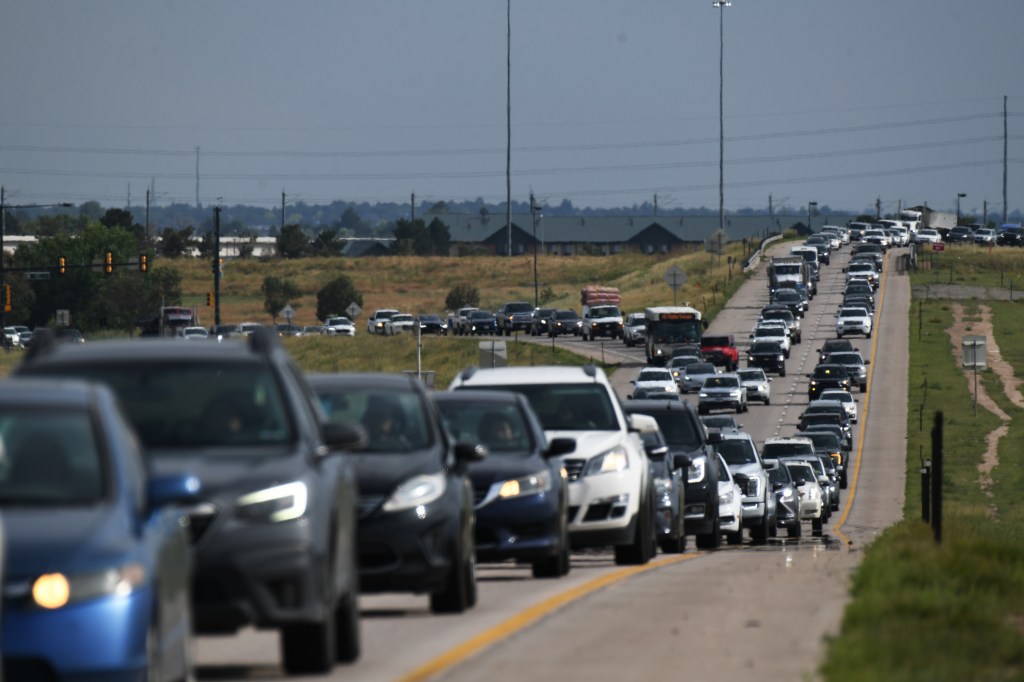Metro Denver residents who suspect they’re spending more time stuck in traffic are right.
Over the past year, drivers have faced the fastest increase in traffic delays in the country, according to the latest analysis from a global transportation data company. While Denver ranks as the 15th most congested U.S. city (New York, Chicago and Los Angeles top the list), delays increased by 19% between 2023 and 2024.
Drivers on Denver metro roads in 2024 lost an average of 44 hours to traffic jams, compared to 37 hours in 2023, according to analysis from Seattle-based INRIX. In New York and Chicago, residents lost an average of 102 hours in traffic jams. In Los Angeles, they lost 88 hours.
The average speed of a vehicle heading into downtown Denver decreased about 7 percent to 13 miles per hour, said Bob Pishue, INRIX principal analyst and author of a report released Monday morning.
“It’s a pretty quick change,” Pishue said.
“Many restaurants and retail stores have been waiting for this. They want the traffic. The traffic shows that there is growth and activity. On the other hand, it leaves us less time with our friends and family. This gives us frustration. This gives us higher costs to move goods and services.
The Denver Regional Council of Governments estimates that the population of the Denver metro area will increase by 1 million people within 30 years. City and state transportation planners have grappled with how to contain traffic, seeking mass transit and densification — encouraging more housing concentrated around bus and train hubs — so that workers don’t have to to drive that much.
INRIX analysis shows that traffic delays in metro Denver were generally greatest on westbound Interstate 270, South Colorado Boulevard, Pena Boulevard and northbound I-225 between interchanges with I- 25 and I-70.
Time lost in traffic jams reduces money and productivity. INRIX analysts calculated that the average Denver driver loses $788 per year. Nationally, they estimated that traffic delays over the past year cost the U.S. economy more than $74 billion.
denverpost


